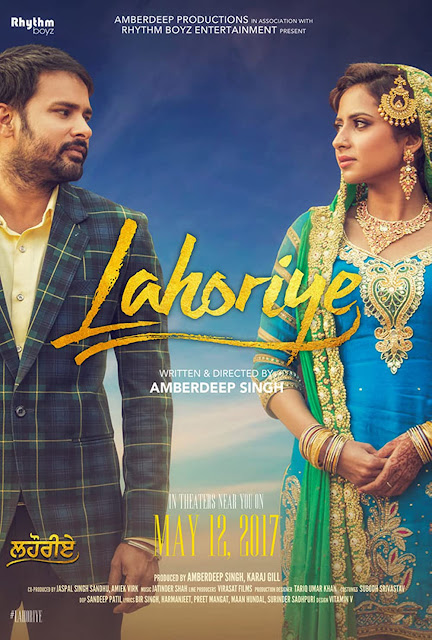Given how this film marks easily the most distracting and
obnoxious audience experience I’ve had to date, this review is going to be one
of the hardest I’ve ever had to write. Kind of difficult to analyse a film when
you can barely hear the bloody thing over drunken hollering from the back row.
Still, I’m not about to let the Seat Of Shame Lifetime Achievement Award get in
the way of my work so let’s do this thing already.
The plot: Reluctant farmer Kikkar (Amrinder Gill), while
tending his fields on the Indian-Pakistani border, spots Pakistani woman
Ameeran (Sargun Mehta). Struck by love at first sight, Kikkar desperately tries
to contact her even though everyone around him says that fraternising with
someone on the other side of the border is a bad idea. However, as their
romance blossoms, the preconceived notions of both sides will be tested.
I don’t like
starting reviews out like this, but dear God, this thing is painful to look at.
The editing is among the most atrocious I’ve seen/heard on the big screen, with
the background music cutting out in the middle of scenes all the bloody time
and, even without my nitpicky attention to detail, it is incredibly obvious and
irritating every time it happens. Not only that, the transitions between scenes
make no sense whatsoever, at one point showing a two-second-long clip of a
sunset before just shifting to the next scene, and pretty much every scene is
bookended by a fade to black like this is a weak 90’s sitcom. And on top of all
of that, I can only guess that the filmmakers were seriously worried about the
G rating it got over here because, whenever there was a scene where a character
drank or smoked, there is a little vice warning (“Smoking is hazardous to your
health”, that kind of thing) at the bottom of the screen. All the Bollywood
films I’ve covered on this blog so far have opened on similar warnings, so I can’t
imagine why they thought that this was necessary.
In keeping with the last Bollywood film I talked about with
rather shoddy production, this film also involves the Partition. With a rather
basic Romeo & Juliet framing on lovers on opposite sides, the film honestly
is pretty good and raising the tensions early on with how dangerous their
love-at-first-sight is. Once again, I will not pretend to completely understand
the racial tensions between India and Pakistan, but I’ve seen enough racist BS
in my own neck of the woods to know that this at least holds up.
Once the two families meet, the film also gets into some
rather poignant statements concerning differences in race, culture and land
that were ultimately forced on them by the British. The way it shows them
connecting over rather mundane details like family life, and mainly bickering
about mother-in-laws and such, may be rather to-the-point but it still makes
for a decent sentiment. This is aided by the prologue, involving two children
becoming friends despite their own cultural differences, which leads into an
unexpectedly touching conclusion that shows no matter how others may divide
them, these people still know what their home is.
Unfortunately, a lot of this gets undone by the core
romance, which fails on two massive fronts. For one, the chemistry between the
two is non-existent, to the point where their romance barely feels like it should
warrant such an uproar between their families, both before and after their
initial conflicts. For another, it’s built around the flimsiest of romantic
clichés, the lovers from afar, which not only makes Kikkar look like something
of an obsessive stalker (he even gives the crazy eyes to her at one point) but
also results in the will-they-won’t-they tension of the third act feeling kind of
lifeless because of how little their relationship is built up. I get that it
was probably done to put more focus on the racial tensions, but then again, the
holes start to show up with that as well.
This mostly manifests in a lot of
repeated dialogue and some incredibly forced tension near the end involving
another would-be couple between the families. This film didn’t need to be a romance story to get its
point across, and yet because it insists on depicting a star-crossed love story
along with everything else, it falls seriously short of its goals. Either the
romantic subplot should have been completely dropped in favour of the
discussions on the racial tensions between the two countries, or more effort
should have been put into it to make it feel worthy of creating such
discussions.
All in all, for as valiant as this film may be in its views
on Indian-Pakistani relations, the writing combined with the straight-up
amateur hour production end up sapping away whatever good can be found here.
Probably doesn’t help that whoever did the official cinematic sub for this
movie apparently just put most of the dialogue through Google Translate with
how broken it was.


No comments:
Post a Comment